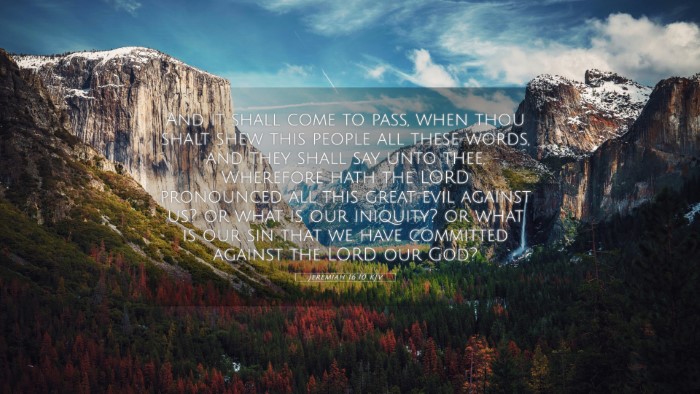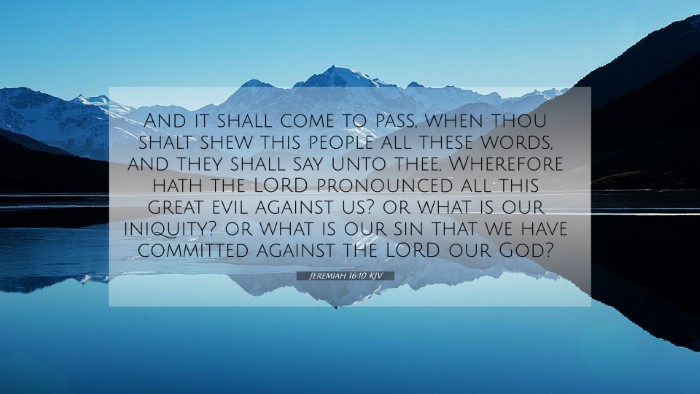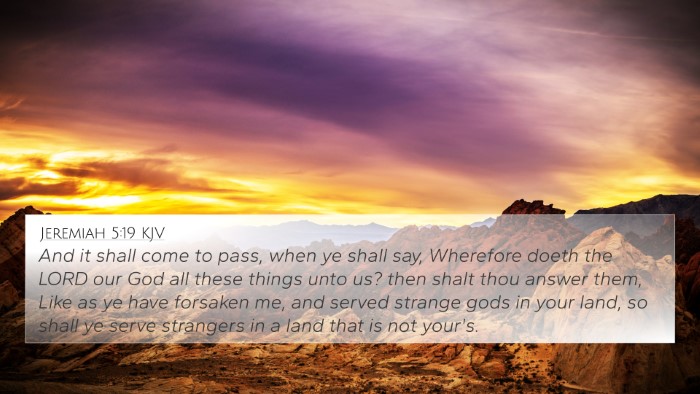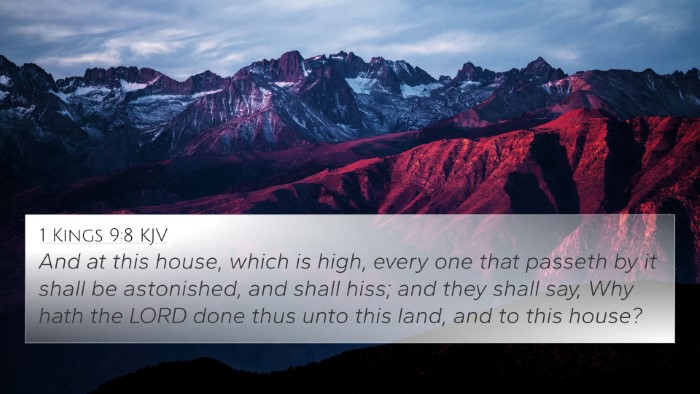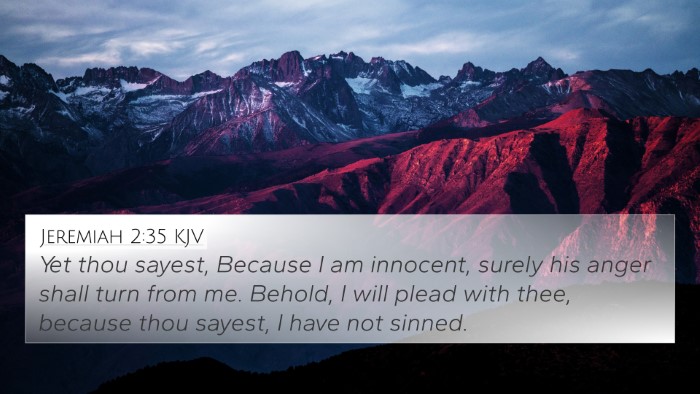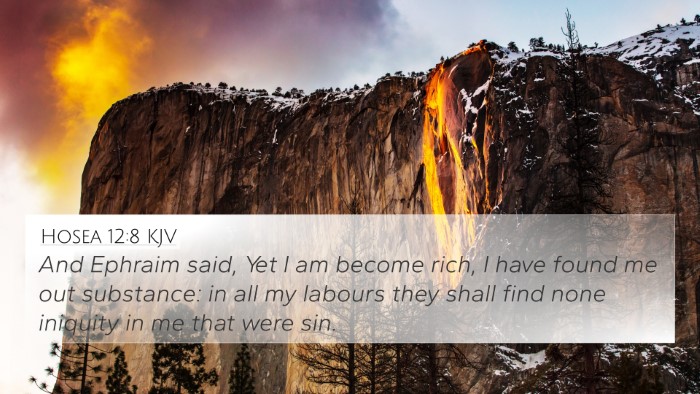Understanding Jeremiah 16:10
Jeremiah 16:10 states: "And it shall come to pass, when thou shalt show this people all these words, and they shall say unto thee, Wherefore hath the LORD pronounced all this great evil against us? Or what is our iniquity? or what is our sin that we have committed against the LORD our God?" This verse captures the essence of God's impending judgment upon the people of Israel, highlighting their questioning and confusion about His actions.
Context and Theme
The Book of Jeremiah primarily deals with themes of warning, judgment, and hope in the context of the impending Babylonian exile. This particular verse exemplifies the profound need for self-reflection and awareness among God's people. As they are confronted with their sins, they are called to acknowledge their iniquities and the reasons behind their suffering.
Commentary Insights
Various public domain commentaries provide valuable insights into this verse:
- Matthew Henry: Henry emphasizes that God clearly communicates through His prophets, and His people are often blind to their own faults. Here, the questioning from the people reflects a lack of self-awareness regarding their spiritual state. They fail to recognize the ultimate accountability for their actions.
- Albert Barnes: Barnes notes the rhetorical nature of the questions posed by the people. They are confronted with God's judgment but respond with defensive inquiries rather than repentance. This serves to highlight their unrepentant hearts and willingness to shift blame instead of introspection.
- Adam Clarke: Clarke elaborates on the significance of the phrase "the great evil" and its implications regarding the comprehensive nature of God's judgment. The people struggle to understand the cause of their suffering, indicating their disconnect with God’s commandments and their dire need for spiritual awakening.
Key Themes and Connections
This verse not only speaks about judgment but calls to mind various connections within the Scriptures. Notable themes include:
- Self-examination: The questions raised indicate a lack of personal accountability and the necessity of recognizing one's own sins.
- The nature of divine judgment: The verse exemplifies the larger theme of divine retribution that is prominent throughout the prophetic texts.
- Understanding God’s ways: The people’s confusion points toward the common human struggle to discern God’s actions, which can be linked with verses that address faith and trust in God.
Cross-References to Explore
For deeper biblical exploration and comparative analysis, the following cross-references provide additional context and thematic relevance to Jeremiah 16:10:
- Deuteronomy 29:24-25: Discusses how other nations perceive the consequences of Israel's disobedience.
- Isaiah 59:2: Addresses sin's separation from God, echoing the themes of iniquity and consequences.
- Hosea 4:6: Highlights God's people’s lack of knowledge and the consequent judgment.
- Lamentations 3:39: Questions the reasons for human suffering and calls for accountability.
- Ezekiel 18:30: God's call for repentance and turning away from sin, emphasizing the opportunity for restoration.
- Micah 6:9: Offers a call to heed the Lord's warnings and the consequences of ignoring Him.
- Romans 2:5-6: Talks about the day of judgment according to one’s deeds, connecting to God’s justice.
Thematic Bible Verse Connections
The connections among these verses can foster a comprehensive understanding of how sin, judgment, and the need for repentance permeate the biblical narrative. Through cross-referencing, the following relationships become clear:
- Judgment is often a theme linked with both the prophets of the Old Testament and apostolic teachings in the New Testament.
- Old and New Testament connections are evident in the shared motif of repentance as a path back to God.
- Linking texts can deepen understanding of God’s covenant, His expectations, and the nature of sin, leading believers toward a reflective spiritual practice.
Conclusion
In Jeremiah 16:10, we find a poignant call to self-examination and repentance amid the acknowledgment of God’s judgment. Through the integration of insights from notable commentaries, thematic connections, and rich cross-references, we gain a deeper insight into how this verse serves not only as a historical warning but as a timeless message relevant to our spiritual journeys today.

